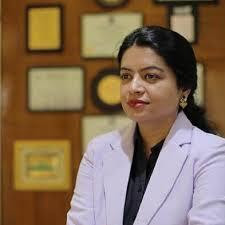What Diet To Take During Your Hair Transplant Journey
The diet we take impacts the health of our hair. It also plays a vital role in deciding the success of hair transplantation. Thus, what to eat during the hair transplant journey is essential to learn about. Regarding this, every hair transplant surgeon in Delhi, like Dr. Urvashi Chandra or anyone else, prescribes a diet chart to their patients. This blog delves into the food you can take during your hair transplant surgery by taking insights from there. Go through the blog if you also want to learn about the diet after hair transplant surgery.
Diet to Take During Your Hair Transplant Journey
The food you take during your hair restoration journey must be rich in multivitamins and multi-minerals. It should consist of the following-
Protein-rich food
It includes pulses, eggs, chicken, dry fruits, milk and other dairy products. Non-vegetarian diets are highly rich in protein, but if you are a vegetarian, you can skip it and increase the intake of veg food rich in protein.
Generally, 40-60 grams of protein daily is recommended for a healthy adult body. Regarding hair transplants, some resources suggest that one gram of protein per kg of body weight is required for healthy hair growth.
Zinc
Zinc deficiency is one of the major causes of hair loss. So, to strengthen the transplanted hair, a Zinc-rich diet is also essential. Non-veg, like meat, fish, and seafood, are rich in Zinc.
For vegetarians, Chickpeas, lentils, pumpkin seeds, boiled lima beans, fenugreek seeds and watermelon seeds are some of the rich sources of Zinc. In addition, you can add Hemp seeds, Beans, Oatmeal, cashews, and Mushrooms to your diet.
Iron
Iron promotes oxygen flow in the bloodstream and boosts immunity. It also improves the texture of the hair on your scalp. The improved blood flow ensures that all vitamins and nutrients are delivered to your hair roots efficiently. Consuming iron-rich meals promotes hair development. Add extra spinach, legumes, green vegetables, shellfish, and red meat to your diet.
To learn about the amount of iron needed, you can book an appointment with your doctor or visit Chandra Clinic, the best hair transplant clinic in Delhi.
Vitamin A
Vitamin A promotes cell development. It also creates sebum from your hair follicles, which makes your scalp naturally greasy. During your hair transplant journey, you must consume Vitamin A-rich meals to avoid a dry scalp, which can cause itching. You can get adequate Vitamin A ( 900 mcg for men, 700 mcg for women) in carrots, spinach, kale, sweet potatoes, pumpkins, and winter squash.
Vitamin B Complex
Also called Cobalamin, the Vitamin B complex is a set of vitamins Bs, including vitamins B1, B2, B7, B12 and more. Vitamin B is essential for hair growth and structural integrity. It is necessary for wound healing following hair transplant surgery because it aids blood clotting. Foods containing B-complex vitamins include bananas, avocados, almonds, eggs, and poultry.
Vitamin D
Hair follicles might become sensitive to hormonal variations in the body. Vitamin D promotes the growth of hair follicles.
Patients undergoing FUT, FUE, and BIO IPT hair transplant surgeries should consume adequate amounts of vitamin D. Vitamin D-rich foods include fish, salmon, oranges, and mushrooms.
Omega-3 Fatty Acid
Following hair transplant surgery, taking omega-3 fatty acids in your diet is critical. Fish is well-known for its high nutrient content, including an abundance of omega-3 fatty acids. Salmon and other similar fish have numerous vital elements that promote healthy hair follicles.
If you are vegetarian, chia seeds, flaxseeds, hemp seeds, walnuts, Brussels sprouts, algal oil, and spirulina are rich sources of omega-3 fatty acids.
Vitamin E
Vitamin E is an antioxidant that aids in skin restoration and tissue damage. It is vital for hair transplant patients because it aids in the regeneration of the skin on the scalp and prevents scarring. It promotes the regeneration of damaged hair follicles. Almonds, avocados, spinach, sunflower seeds, olive oil, and other foods high in vitamin E are excellent sources.
In addition to a healthy diet, you are advised to increase your water intake and keep the body hydrated. It will help to manage your body temperature and flush out the toxins from the body. Furthermore, to make your hair transplant journey easy, avoiding liquor, smoke, tobacco, and caffeine will be beneficial.
Conclusion
Hair transplants are popular for their high success rate. However, the success rate that depends on selecting the best hair transplant surgeon, technique, and clinic also depends on one’s diet and lifestyle. One with a healthy lifestyle and nourishing diet can receive better and quicker results. So, you are advised to focus on your diet chart and properly nourish your hair. You can schedule an appointment with your doctor or Dr. Urvashi Chandra at Chandra Clinic to learn more about it. She is among the best surgeons renowned for reasonable hair transplant cost in Delhi. To learn more, pay a visit at the clinic now!




Comments
Post a Comment